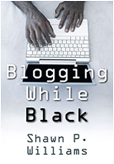Shawn Williams: A blessing and a curse for Paris, Texas
This is the content of an article the I wrote which appeared in Sunday’s Points Section of the Dallas Morning News. Thanks to Nicole Stockdale for allowing me to state my opinion.
February 15, 2008
My hometown’s biggest blessing is also its biggest curse. There’s something about the name Paris, Texas, that is simultaneously romantic and amusing. A town that fancies itself as the second-largest Paris in the world – complete with a miniature Eiffel Tower – leaves itself open to a certain amount of good-natured ribbing. But there’s nothing funny about the struggle for identity that’s taking place in the East Texas town.
No one outside of Lamar County cares that the girls basketball team is having its best season in years, but onlookers are all too eager to see how the city will handle its latest round of increased racial tension. Over a two-year period, Paris has been skewered in the national press, portrayed as the stereotypical Southern town where Jim Crow-era prejudice is alive and well.
The media spotlight started shining on Paris in March 2007 after Howard Witt of the Chicago Tribune wrote a story about a 14-year-old African-American female who was sentenced for up to seven years in juvenile prison for pushing down a hall monitor. Later in the year, Witt introduced much of the nation to the Jena Six, and his reporting on those two episodes helped him earn a Pulitzer Prize nomination for journalism.
Witt returned to Paris late last year to chronicle the story of two white men accused of murdering a black man, Brandon McClelland, and then dragged him under a pickup. The incident, referred to as a “modern-day lynching” in some circles, has led to protests and marches at the county courthouse. Many Parisians have tired of Witt’s seeming fascination with their town, calling him a muckraker and accusing him of race-baiting.
Recently other media outlets have latched onto the murder case, including Newsweek and The New York Times. While Witt spent significant time learning about the city and its past, other journalists seem bent on making a name of their own at the city’s expense. Witt’s work has benefited Paris in ways residents may never know, yet I’m skeptical of the newfound interest others have found in my childhood home. Without question, the McClelland murder case is newsworthy and relevant, but at what point does pertinent reporting morph into piling on?
Under pressure, the Lamar County District Attorney Gary Young recused himself from the case for having served as counsel to one of the defendants in a manslaughter case. The defensive posture the DA’s office took toward calls for Young’s removal damaged the whole town’s credibility, just as it did two years ago. But now that Young has stepped down and appointed former Dallas County prosecutor Toby Shook to try the case, I’m not sure what more we can learn before there is action in the courtroom.
Most articles related to Paris miss out on the thing that has intrigued me the most: how everyday people of different attitudes and backgrounds are sitting across the table from one another trying to come to grips with what has taken place. For the last three months, Paris residents have worked with the U.S. Department of Justice’s Community Relations Division to see what good may be mined from the stony path placed before them.
The first thing that struck me when I attended one of the sessions was how the hundred in attendance voluntarily intermingled without the prodding of the facilitators. It’s rare (outside of a work function) that any of us sit down at an event where the people to our left and right are of a different racial or ethnic background than our own.
To date, the sessions have allowed citizens to air their grievance on issues ranging from a Confederate statue that sits on the courthouse lawn to black students feeling slighted by their teachers. It hasn’t been easy, and there’s been no shortage of ruffled feathers and hurt feelings in the process. The Department of Justice has committed to using its resources to help the town address sentencing disparities and a failing education system, problems that affect municipalities both large and small.
It might not sound like much to city folks, but I’ve been encouraged by the effort residents have shown to improve their city. All Parisians must be willing to share in the blame for their predicament, while the media should examine whether they’re making a difficult situation worse in order to sell a few extra copies.
In the end, residents have the opportunity to interact with one another at a level that many of us aspire to but rarely achieve. But who wants to read about that?




